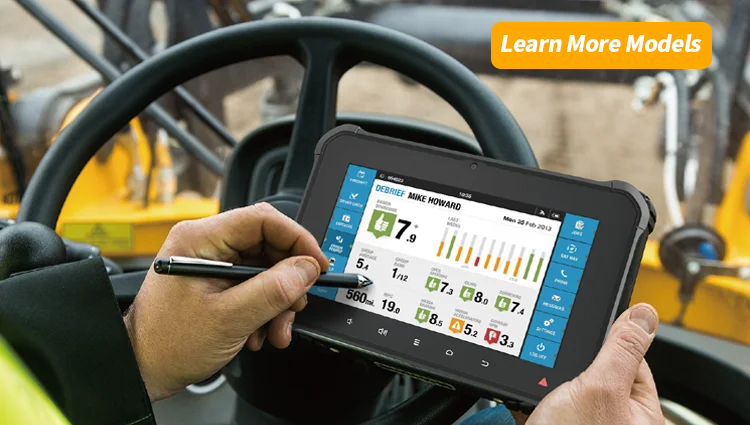Maximizing Fleet Efficiency: The Impact of Mobile Data Terminal Computers
In the dynamic world of fleet management, the quest for efficiency and optimization is a never-ending journey. With the advent of mobile data terminal (MDT) computers, this journey has taken a significant leap forward. These devices have revolutionized the way fleets operate, providing real-time data, enhancing communication, and streamlining operations. This article delves into the transformative role MDT computers play in fleet management, exploring how they can propel your fleet to the top of the industry.
The Power of Connectivity:
At the heart of MDT computers‘ impact is their ability to connect. These devices serve as the bridge between the vehicle and the central fleet management system. By facilitating constant communication, MDTs enable managers to monitor vehicle location, fuel consumption, driver behavior, and maintenance needs in real-time. This connectivity not only enhances situational awareness but also allows for proactive decision-making, reducing downtime and improving overall fleet performance.
Real-Time Data for Better Decisions:
One of the most significant advantages of MDT computers is their capacity to provide real-time data. This data-driven approach allows fleet managers to make informed decisions that can directly impact the bottom line. For instance, by analyzing fuel consumption patterns, managers can identify inefficiencies and implement strategies to reduce fuel costs. Similarly, tracking driver behavior can help in identifying training needs, thereby reducing the risk of accidents and associated costs.
Route Optimization and Fuel Efficiency:
MDT computers are equipped with GPS technology that enables them to provide optimal routing suggestions. By calculating the most efficient routes, these devices help in reducing travel time and fuel consumption. This not only contributes to cost savings but also reduces the environmental impact of fleet operations. Moreover, MDTs can integrate with traffic management systems to provide real-time traffic updates, further enhancing route efficiency.
Enhanced Driver Communication:
Communication is key in fleet management, and MDT computers play a crucial role in facilitating this. They enable drivers to receive updates and instructions directly from the dispatch center, ensuring that they are always in the loop. This communication can help in avoiding delays, managing emergency situations more effectively, and maintaining a high level of service quality.
Maintenance Scheduling and Compliance:
Regular maintenance is essential for keeping a fleet in top condition. MDT computers can track vehicle health and alert managers when maintenance is due. This proactive approach not only extends the life of the vehicles but also helps in avoiding costly breakdowns. Furthermore, MDTs can help in managing compliance with regulatory requirements by tracking driver hours, rest periods, and other relevant data.
Security and Theft Prevention:
The integration of MDT computers with security systems can provide an additional layer of protection for fleet vehicles. These devices can monitor unauthorized vehicle usage and send alerts in case of theft or vandalism. This feature not only safeguards the physical assets but also helps in maintaining the integrity of the fleet’s operations.
Conclusion:
In conclusion, mobile data terminal computers are indispensable tools in the modern fleet management arsenal. They offer a comprehensive solution that enhances connectivity, optimizes operations, and ensures compliance. By leveraging the power of MDT computers, fleet managers can achieve a level of efficiency and control that was previously unattainable. As the industry continues to evolve, the adoption of MDT computers will undoubtedly remain a critical factor in determining the success of fleet operations.








